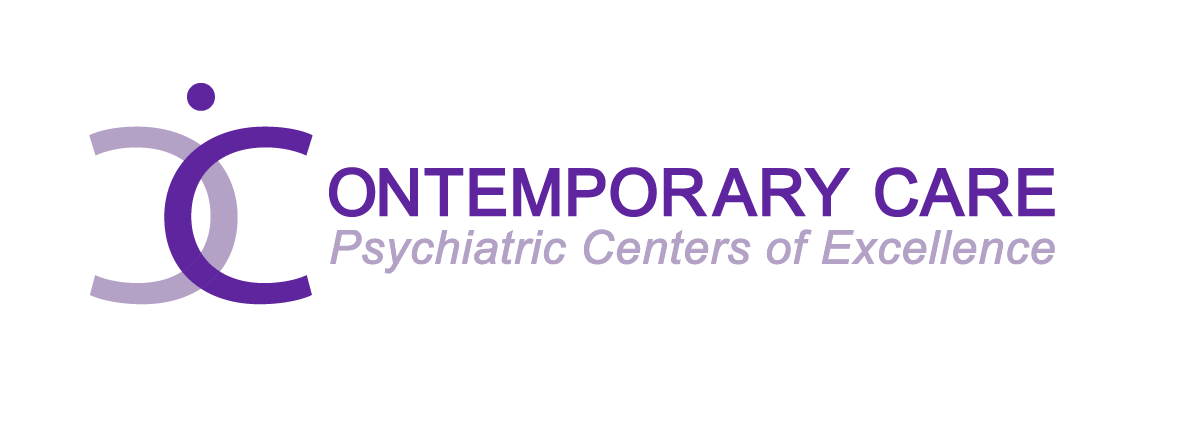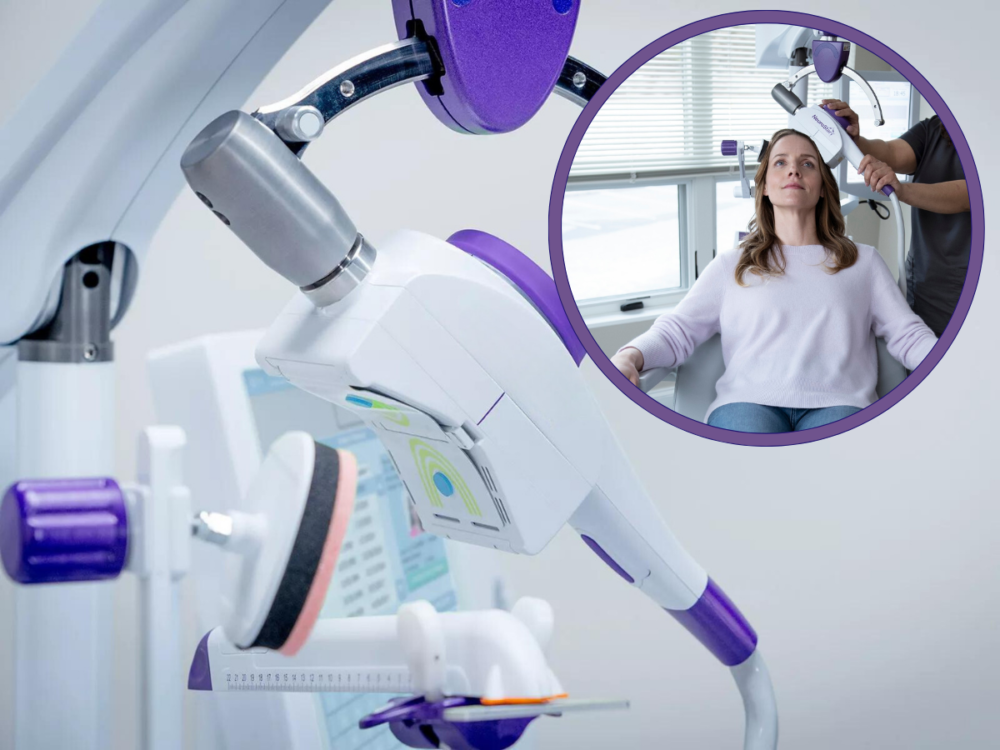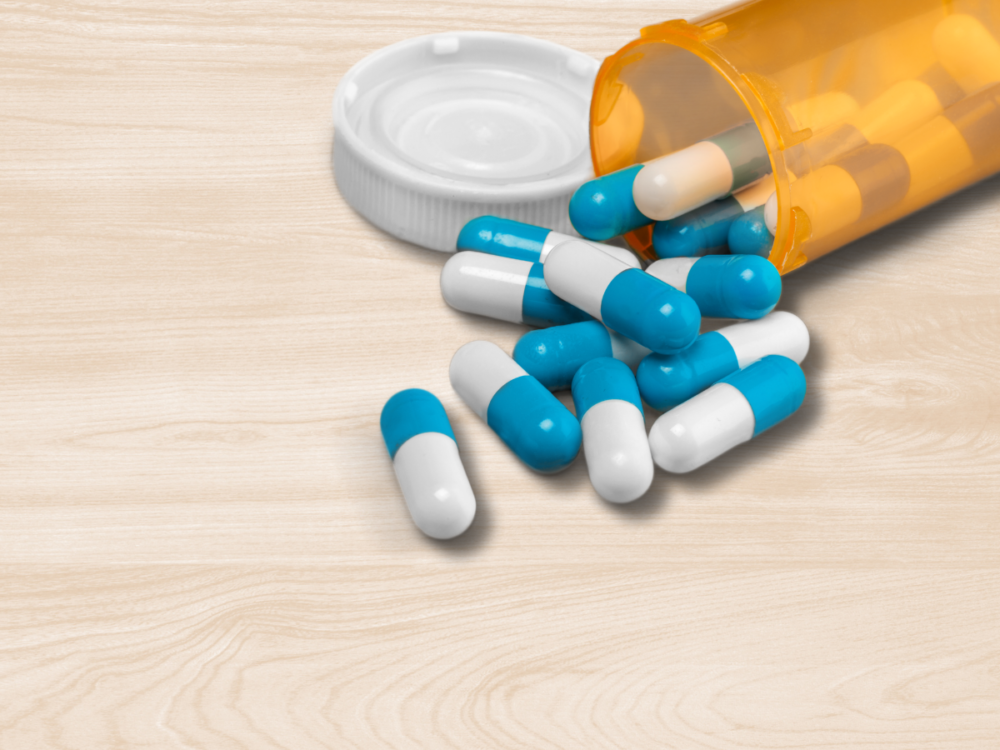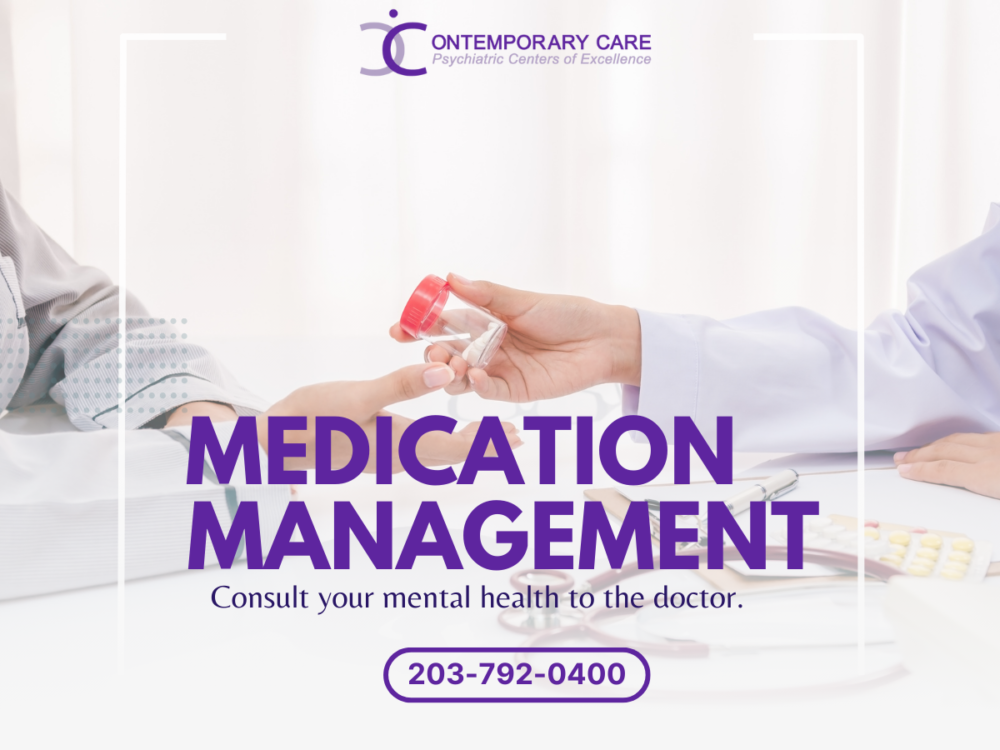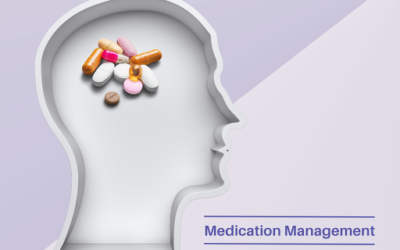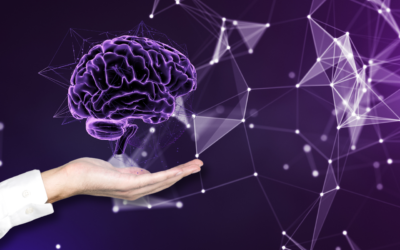Depression is a wide net that has tangled millions of people across the globe in its grasp, yet its dangerous nature still needs to be more widely known. Often described as the silent predator of mental health, depression is a complex and debilitating condition that silently infiltrates the lives of millions worldwide. Despite its prevalence, the true depth of its impact often remains hidden beneath societal stigmas and misconceptions. But what exactly is depression?
At its core, depression manifests as more than just fleeting sadness or occasional melancholy. It’s a profound and pervasive mood disorder that affects how individuals think, feel, and handle daily activities. Unlike the transient ups and downs of life, depression lingers, casting a shadow over every aspect of one’s existence.
In this comprehensive study, we delve into the nuances of depression, its symptoms, treatments, and emerging therapies, specifically transcranial magnetic stimulation (TMS). Let’s take a look at the intricacies of this prevalent mental health condition.
What Is Depression?
Depression isn’t merely feeling sad or blue; it’s a debilitating condition that affects individuals on a profound level. According to the latest reports, approximately 3.8% of the population experiences depression. Within this percentage, 5% are adults, comprising 4% men and 6% women, while 5.7% are adults aged over 60 years. In simple terms, this equates to approximately 280 million people worldwide grappling with depression.
The statistics surrounding teen depression paint a concerning picture of the mental health landscape for adolescents. Shockingly, suicide ranks as the third leading cause of death among individuals aged 12 to 18, highlighting the severity of untreated mental health issues.
A staggering 14% of teens have endured at least one episode of depression within the past 12 months alone, while a troubling 20% will grapple with depression before reaching adulthood.
Even more alarming is the fact that 10-15% of teens exhibit symptoms of depression at any given time, yet a staggering 80% of them do not receive the help they desperately need.
Gender disparities further compound the issue, with female teens being twice as likely as their male counterparts to experience symptoms of depression. These sobering facts underscore the urgent need for increased awareness, accessible resources, and proactive intervention to address teen depression and prevent tragic outcomes.
In the United States alone, over 18 million adults battle depression each year, making it a significant public health concern.
Symptoms and Patterns
Depression can deeply affect people’s lives, enveloping them in feelings of hopelessness and isolation. When someone is experiencing depression, they face various difficult symptoms that affect their daily life.
One of the main signs of depression is a persistent feeling of sadness, irritability, or emptiness. Additionally, they may lose interest in activities they used to enjoy. These feelings persist throughout the day, nearly every day, for at least two weeks, which is very different from the normal ups and downs we all experience.
The impact of depression extends far beyond mere emotional distress, infiltrating every facet of an individual’s life. Cognitive impairments, such as poor concentration and persistent feelings of guilt or worthlessness, further exacerbate the burden of the condition.
Moreover, profound hopelessness about the future and recurrent thoughts of death or suicide often accompany the depressive experience, intensifying the sense of despair and isolation. Disrupted sleep patterns, changes in appetite or weight, and pervasive fatigue or low energy levels further compound the challenges faced by those navigating the throes of depression.
Notably, depression is not a one-size-fits-all affliction but rather manifests in various forms and degrees of severity. From mild to severe, depressive episodes are classified based on the number and intensity of symptoms, as well as their impact on an individual’s functioning.
Additionally, distinct patterns of depressive episodes emerge, delineating the unique trajectories of each person’s journey with the condition. Whether characterized by a single episode, recurrent bouts, or intertwined with manic symptoms in bipolar disorder, the nuances of depressive episodes underscore the heterogeneous nature of this pervasive mental health challenge.
Depression Facts
Depression, a profound and debilitating medical condition, manifests through symptoms such as persistent melancholy, loss of pleasure, energy depletion, cognitive difficulties, and even thoughts of suicide. More than just a temporary emotional state, depression is both a brain disorder and a manifestation of one’s mental state, underscoring the intricate relationship between neurological processes and psychological well-being.
Within the landscape of mind-brain illnesses in the United States, depression looms largest, comprising a staggering 99% of all such conditions. This encompassing term includes Major Depressive Disorder and a spectrum of related mood disorders, ranging from bipolar disorder to postpartum depression and anxiety disorders.
Despite its prevalence, the term “mental illness” fails to capture the complexity and biological underpinnings of these conditions, perpetuating stigma and misinformation. Recognizing this, organizations like HDRF advocate for a shift in terminology, choosing instead to refer to these afflictions as “mind-brain illnesses,” a designation that reflects their biological basis while combating societal misconceptions and fostering greater understanding and empathy.
What is TMS Therapy?
Transcranial magnetic stimulation (TMS) stands as a beacon of hope for individuals grappling with treatment-resistant depression and other neurological disorders. As a noninvasive brain stimulation therapy, TMS utilizes electromagnetic pulses that come through a magnetic coil to target specific nerve cells, providing deep brain stimulation and offering a potential avenue for symptom improvement.
Initially approved by the FDA in 2008 for treating depression, TMS has since garnered attention for its potential efficacy in addressing conditions such as anxiety and Parkinson’s disease, broadening its therapeutic horizon.
Purpose and Applications
For individuals whose symptoms persist despite conventional treatments and to stimulate nerve cells like medications and psychotherapy, repetitive TMS emerges as a viable alternative. Beyond depression, TMS has shown promise in treating conditions like obsessive-compulsive disorder (OCD), and migraines, and even aiding in smoking cessation when other interventions prove ineffective. This versatility underscores the potential of TMS to revolutionize treatment paradigms across a spectrum of neurological and mental health disorders.
Preparing for repetitive transcranial magnetic stimulation (rTMS) involves several important steps to ensure the safety and effectiveness of the procedure. Before undergoing rTMS, individuals typically undergo a thorough evaluation process to assess their suitability for the treatment.
This evaluation may include a physical examination, laboratory tests, and a comprehensive mental health assessment to discuss the individual’s depression and medical history. These evaluations serve to identify any potential risk factors or contraindications that may affect the safety or efficacy of rTMS.
Individuals must inform their healthcare provider of any relevant medical information before undergoing rTMS. This includes disclosing pregnancy or plans for pregnancy, as well as the presence of any metal or implanted medical devices in the body.
While some individuals with metal implants or devices may still be eligible for rTMS, certain devices pose a risk due to the strong magnetic field generated during the procedure. These include aneurysm clips or coils, stents, implanted stimulators, pacemakers, and cochlear implants, among others.
Additionally, individuals should provide a comprehensive list of all medications they are taking, including prescriptions, over-the-counter medications, herbal supplements, and vitamins. It is important to discuss the dosage and frequency of these medications, as they may interact with rTMS or affect its efficacy. Individuals should also disclose any history of seizures, mental health conditions, brain damage, frequent or severe headaches, or other medical conditions that may impact their suitability for rTMS.
Finally, individuals who have previously undergone rTMS should communicate their experiences with their healthcare provider, including any benefits or side effects they may have experienced. This information can help inform the decision-making process and optimize the treatment plan for each individual’s unique needs and circumstances.
The TMS Experience
Embarking on TMS therapy marks a commitment to an intensive treatment regimen. Sessions typically occur five days a week over several weeks, each lasting between 20 to 50 minutes. Upon arrival, patients undergo a meticulous process guided by trained technicians or doctors.
By targeting key brain regions like the motor cortex and dorsolateral prefrontal cortex technicians tailor the stimulation intensity and anatomical target to each individual, optimizing therapeutic outcomes. While immediate relief may not be apparent, the cumulative effects of TMS often become evident after several weeks of consistent treatment.
Benefits of TMS
Transcranial Magnetic Stimulation (TMS) therapy offers a promising array of benefits across a spectrum of neurological and psychiatric conditions. Primarily renowned for its efficacy in treating Major Depressive Disorder (MDD), TMS presents the guiding light for individuals who have found little relief from conventional medication and psychotherapy.
By stimulating nerve cells and enhancing activity in the prefrontal cortex—a region associated with depression symptoms—TMS holds the potential to alleviate the profound emotional burden of treatment-resistant depression. Similarly, for those grappling with Obsessive-Compulsive Disorder (OCD), TMS serves as a beacon of hope, disrupting hyperconnectivity between brain regions and mitigating severe symptoms.
Moreover, TMS therapy extends its therapeutic reach to encompass anxiety disorders and post-traumatic stress disorder (PTSD), offering a holistic approach to addressing the interconnected manifestations of psychological distress.
Beyond its psychiatric applications, TMS emerges as a valuable tool in the realm of neurological rehabilitation. Following a stroke, TMS interventions facilitate motor recovery by modulating activity in the motor cortex, offering renewed hope for individuals grappling with long-term loss of muscle movement.
Furthermore, TMS demonstrates promising outcomes in ameliorating symptoms of Parkinson’s disease, particularly freezing of gait—a debilitating manifestation of the condition. In the realm of neurodegenerative disorders, such as Alzheimer’s disease, TMS emerges as a potential ally, reshaping neural connections implicated in memory and learning processes.
Chronic pain conditions, often intertwined with psychiatric comorbidities, also stand to benefit from TMS therapy. By stimulating the motor cortex and modulating neurotransmitter activity, TMS holds promise in alleviating the pervasive burden of fibromyalgia and other chronic pain disorders.
Additionally, TMS shows potential in tackling nicotine addiction, disrupting the reward pathways implicated in cravings and dependency. Even in the realm of multiple sclerosis (MS), TMS emerges as a transformative intervention, effectively reducing spasticity and enhancing mobility when combined with physical therapy.
Through its diverse applications, TMS therapy emerges as a beacon of hope, offering transformative interventions that transcend the boundaries of traditional treatment modalities.
Efficacy and Outlook
The efficacy of TMS therapy offers a ray of hope for those who have struggled to find relief through traditional avenues. Studies indicate that approximately 50% to 60% of individuals with treatment-resistant depression experience a clinically meaningful response to TMS, with one-third achieving full remission.
While not a permanent solution, the benefits of TMS often endure for many months post-treatment, providing respite from the burdens of depression and other disorders. For those who do not respond to TMS alternatives like electroconvulsive therapy (ECT) may offer a path towards relief, highlighting the importance of personalized treatment approaches in navigating the complexities of mental health.
Does TMS Work for Other Conditions?
Transcranial Magnetic Stimulation (TMS) stands at the forefront of innovative medical research, with its potential extending far beyond psychiatry into various fields of healthcare. Extensively studied across a spectrum of disorders and disciplines, TMS holds promise as a future treatment not only for psychiatric conditions but also for neurological disorders, pain management, and physical rehabilitation.
Current large-scale clinical trials are investigating the effectiveness of TMS in treating pediatric depression, bipolar disorder, obsessive-compulsive disorder (OCD), smoking cessation, and post-traumatic stress disorder (PTSD) While these trials offer hopeful glimpses into the therapeutic potential of TMS, it’s important to note that its use for these conditions remains “off-label” as it has not yet received official approval.
Nonetheless, as research continues to advance, TMS emerges as a promising avenue for addressing a wide range of medical challenges, offering renewed hope for improved health outcomes across diverse patient populations.
How Much Does It Cost?
The cost of transcranial magnetic stimulation (TMS) therapy can be a significant consideration for individuals seeking relief from treatment-resistant depression. Typically, one course of TMS therapy ranges between $6,000 to $12,000 out of pocket, making it a substantial financial investment for many. However, the financial burden may be mitigated for some individuals through health insurance coverage.
Health insurance providers may offer coverage for TMS therapy, but eligibility often hinges on an individual’s medical history and the severity of their condition. In some cases, insurance companies may require individuals to exhaust other treatment options before approving coverage for TMS. This could entail trying at least four different antidepressants to demonstrate treatment resistance or experiencing adverse reactions to medication.
Alternatively, insurance providers may consider covering TMS therapy if individuals have documented negative reactions or intolerable side effects when using antidepressants. In such instances, TMS may be deemed a medically necessary alternative for managing depression. However, coverage criteria can vary widely among Insurance plans and providers, leading to uncertainty and potential financial strain for individuals navigating the complexities of mental health treatment.
Medication Management For Depression
Medication plays a pivotal role in the treatment of major depression, a prevalent and often debilitating condition that affects millions worldwide. With careful consideration of patient characteristics, safety profiles, and anticipated side effects, healthcare providers tailor medication choices to suit individual needs.
While many patients experience a significant reduction in symptoms with pharmacologic treatment, it’s essential to recognize that complete relief may not be achieved for everyone. Moreover, all antidepressants carry the potential for harmful side effects, necessitating close monitoring by qualified healthcare professionals.
Tricyclic antidepressants (TCAs) represent one class of medications commonly used in depression treatment. By blocking the reuptake of norepinephrine and serotonin, TCAs can alleviate symptoms; however, they may also induce unwanted side effects such as weight gain, sedation, constipation, dry mouth, and changes in blood pressure and heart rate. Starting with lower dosages, typically around 75-100 mg daily, patients gradually increase as needed. It’s crucial to note that TCAs pose a higher risk of cardiovascular issues in individuals with specific heart conditions, emphasizing the importance of thorough medical history disclosure before initiating treatment.
Selective serotonin reuptake inhibitors (SSRIs) have emerged as a cornerstone of depression therapy since the introduction of Prozac (fluoxetine) in 1986. Operating by inhibiting serotonin reuptake in the brain, SSRIs enhance serotonin’s mood-regulating effects. Despite their efficacy, SSRIs may yield side effects such as insomnia or drowsiness, sexual dysfunction, and weight gain.
Similarly, serotonin-norepinephrine reuptake inhibitors (SNRIs) function by inhibiting the reuptake of both serotonin and norepinephrine. While effective in alleviating depressive symptoms, SNRIs can provoke adverse effects including gastrointestinal disturbances, insomnia, headaches, and minor increases in blood pressure.
These potential side effects underscore the importance of informed decision-making and close monitoring during depression medication treatment, emphasizing the need for individualized care to optimize patient outcomes while minimizing risks.
How is Medication Management Effective?
Medication management in mental health treatment is a crucial aspect of comprehensive care, offering patients a structured approach to optimizing their medication regimen for improved well-being. The process begins with a thorough review of the patient’s medication history by their healthcare provider.
This entails assessing past medication effectiveness, adverse reactions, and current prescriptions to ensure safety and efficacy moving forward. By understanding the patient’s unique medical background, doctors can tailor a medication plan that addresses their specific needs and concerns.
One of the primary benefits of Medication Management is its ability to alleviate stress surrounding medication adherence. With a clearly defined schedule and dosing regimen, patients can confidently navigate their treatment journey, knowing when and how to take their medications. Additionally, medication management provides a safety net for patients who may experience symptoms or adverse reactions from their medication. By offering ongoing support and guidance, healthcare providers empower patients to address any concerns promptly, ensuring their overall well-being remains a top priority.
Furthermore, medication management fosters a collaborative approach to care, allowing multiple healthcare professionals to contribute to the patient’s treatment plan. Through interdisciplinary communication and coordination, doctors can make informed decisions regarding medication prescriptions, enhancing the likelihood of treatment success.
This personalized approach not only increases the efficacy of medication but also promotes patient engagement and satisfaction with their mental health treatment.
Moreover, effective medication management can lead to cost savings for patients by minimizing unnecessary medication expenses and hospital visits due to adverse reactions. By optimizing medication regimens and addressing side effects proactively, patients can avoid unnecessary healthcare expenditures while maximizing the benefits of their treatment.
Overall, medication management plays a pivotal role in ensuring patient comfort, safety, and satisfaction throughout their mental health journey, ultimately contributing to improved outcomes and quality of life.
Seeking Support
Deciding to seek medication support for mental health struggles can be daunting and complex. If you find yourself grappling with relentless thoughts that feel out of control or consumed by fear and worry, impacting your ability to relax or sleep, you may be considering this option. Similarly, if your therapist or doctor has recommended medication as part of your treatment plan, you may be faced with questions and uncertainties about what this entails.
Excessive anxiety can manifest in various areas of life, making it challenging to focus on work or enjoy once-beloved activities. For students, untreated ADHD can pose significant obstacles to concentration and academic success. Meanwhile, the pervasive grip of depression can drain motivation and energy, rendering even the simplest tasks feel overwhelming.
However, navigating the process of seeking help can feel overwhelming in itself. Past experiences with medication, whether positive or negative, may influence your decision-making. Factors such as relocation or difficulty accessing healthcare providers can further complicate matters. Perhaps you’re uncertain whether therapy, medication, or a combination of both is the right approach for you.
In difficult times, you can seek help from Contemporary Care Centers which stands as a steadfast ally, offering a guiding light of support and healing. Led by Dr. Tarique Perera, an esteemed psychopharmacologist and Clinical Director, its practice is committed to providing comprehensive psychiatric care tailored to your unique needs.
Whether you seek medication management, therapy, or innovative treatments like TMS and Esketamine, we prioritize your well-being above all else.
The dedicated team of CCC understands the challenges you face and strives to meet you where you are, offering compassionate care and collaborating with you to develop a personalized treatment plan.
With Telehealth services available for safety and convenience, they extend a warm invitation to explore their services and embark on a journey toward emotional wellness. Your mental health matters, and we’re here to help you navigate life’s challenges with confidence and resilience. To learn more about their services and approach to mental health care, visit https://contemporarycarecenters.com/
